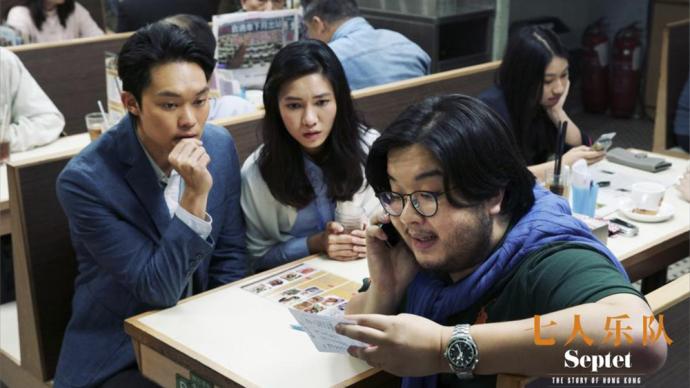
For film culture, it has gathered so many well-known Hong Kong directors to shoot a short film platter. Just one stop in front of the stage is a walking book of Hong Kong's 40-year history of film development. No matter the actual quality of the film, it cannot be ignored. Therefore, whether this film is selected as the opening film of this year's First Film Festival and the Hong Kong Film Festival, or whether it has received a lot of spontaneous media promotion, it is a due courtesy of "Hong Kong Film". Especially since this year is the 25th anniversary of Hong Kong's return to the motherland, it makes people feel a little bit more associative to celebrate the cultural blending of the whole world.
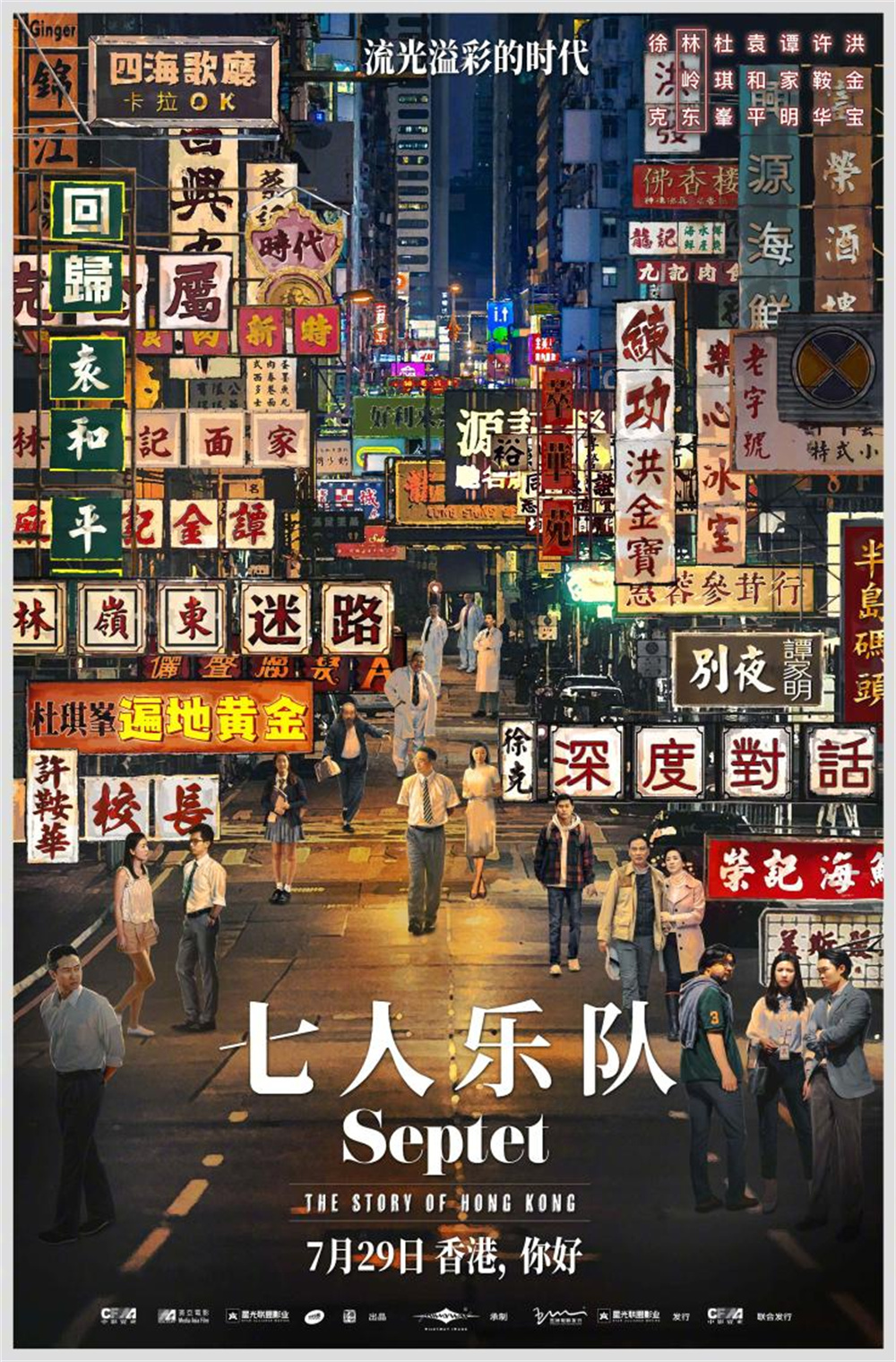
"The Band of Seven" poster
However, the bleak release of the box office for a few days seems to be expected before. No matter how you think about it, today's Hong Kong movies are no longer the concern of many mainland audiences. Except for a few moviegoers, most viewers probably don't want to know what the film is about and what it wants to show. So "Band of Seven" is a bit of an art film that the people in the circle are collectively self-satisfied with, which is also in line with the fact that the Hong Kong film market has generally been sluggish in recent years, far behind the mainland film market.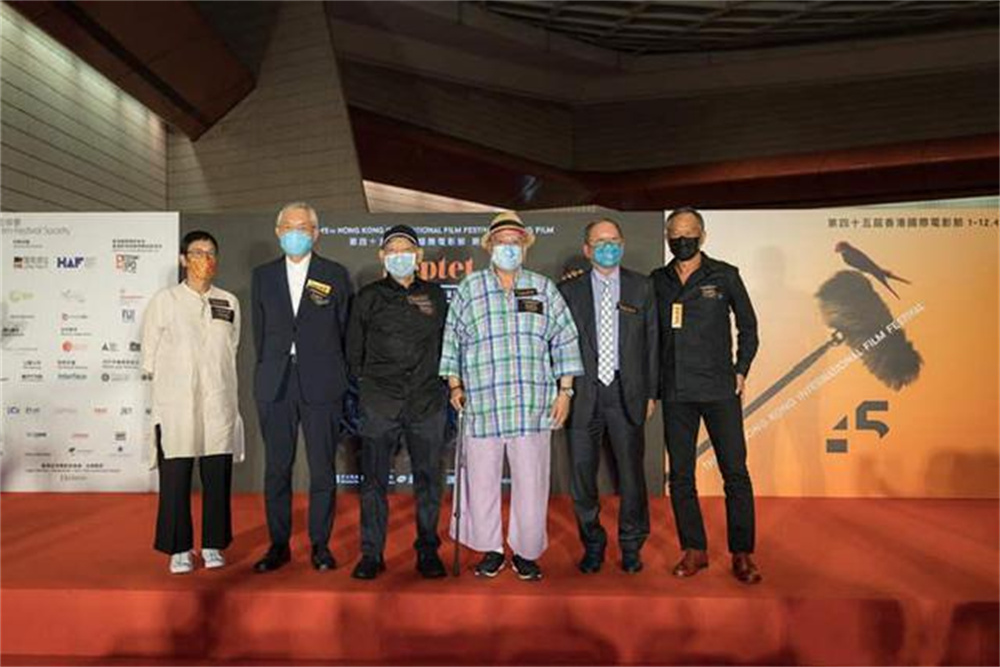
The six directors of "The Band of Seven" are the promotional platforms for the Hong Kong Film Festival. Because of wearing a mask, it is not an official promotional photo, and it looks a bit funny, but it has the taste of a real record of the background of the times.
But when you really look at it, you have to sigh that the thin dead camel is bigger than the horse. It's still a pretty entertaining movie. The more familiar and familiar with Hong Kong movies, the more we can understand that these directors are still adhering to their own creative styles and shooting their works with heart. This "short film platter" will also become an important part of Hong Kong film history in the future.Of course, don't be intimidated by too many cultural connotations and anecdotes behind it. Like it or not, it is the intuition of the audience, and it is also a benchmark for evaluating whether a "movie" is good or not. If it's just for "fun", hopefully it won't disappoint the audience too much.
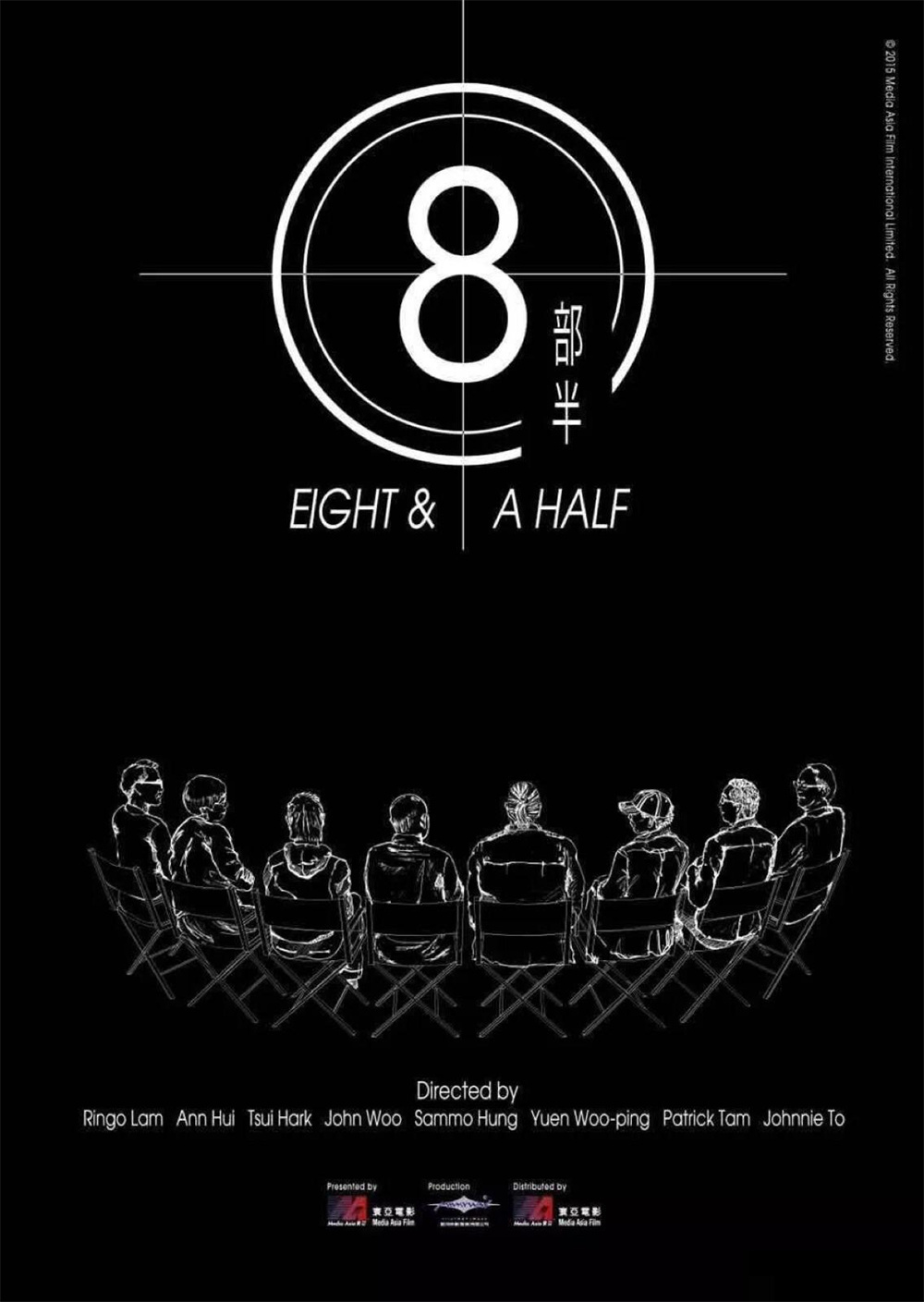
From the original concept poster to today's film release, John Woo withdrew due to physical reasons, and Lin Lingdong has left us. Life is a process of constant loss.
In terms of fate, "The Band of Seven" was an idea initiated by director To Qifeng 8 years ago. At first, 8 Hong Kong film directors were gathered together to cast lots, and roughly each of them claimed a piece of Hong Kong cultural background from the 1950s to the present, and created a short story about film film shooting independently. Of course, the proposition composition of "age background" is partly just a planned publicity stunt. It is nothing more than hoping that the directors can stagger the subject matter more when making films. It is generally a "fun" idea, rather than a cultural task such as "crossing the history of Hong Kong". And in the 1970s, which was claimed by director John Woo, because he withdrew due to physical reasons, it was simply vacant.From "Eight and a Half" to "Band of Seven", in which director Lin Lingdong passed away at the end of 2018, there is no chance to see the film basically completed in 2020, and I didn't expect it to be released this year because of the global epidemic. , it's really sad. It seems that the gathering of old friends for many years is always less and less people, and some people are constantly absent, which is also the normal state of life change.
After talking about the background, briefly comment on each director's short film one by one. For those who are unfamiliar with Hong Kong movies, here are some hints.
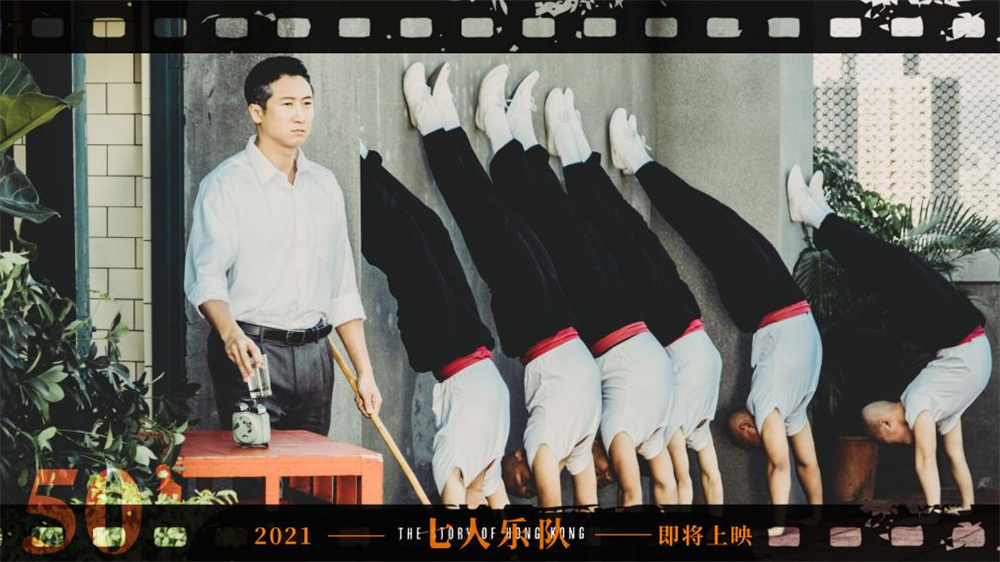
"Practice" is a love poem dedicated to the movie, and it was actually shot very delicately.
"Practice" (directed by Sammo Hung)The short film depicts an interesting story of Sammo Hung and his brothers practicing on the rooftop when he was young. The children were lazy and fooled the master, and were found to be punished, and they did not dare to slack off after that.
The short film seems to be taken from a very random angle. It is based on the self-report of "Hong Jinbao", and the actor of "Master" is Hong Tianming, the eldest son of Director Hong. It is easy to be regarded as a sketch that was casually made up. However, as the opening short film, it is actually quite heavy.
If you are familiar with the history of Hong Kong film, you will know that the Hong Kong film that gradually entered the international perspective from the 1960s to the 1970s is based on the word "Kung Fu" represented by Bruce Lee. In the 1980s and 1990s, the most glorious period of Hong Kong movies, it was also the pillar of "Seven Little Fortunes". With Jackie Chan, Sammo Hung and many others, together with many dragon and tiger martial artists, they completed all kinds of human flesh stunts that could not be copied with the spirit of desperation. Hong Kong cinema was able to stand up to the spectacle of Hollywood. It can be said that the root of the development of Hong Kong film is the kung fu film.
"Practice", from a seemingly light point of view, mentions this history. Instead of talking about the "difficulties and innovations" of the filmmakers, it said "children's laziness", which is actually very humane. The plots of children escaping from practice in the film are quite natural and vivid. However, the short film also spent a lot of time showing the children's vigorous tumbling and jumping posture, showing the solid basic skills of martial arts, and it is an amazing "movement spectacle". The success of kung fu films and Hong Kong films in the future is precisely because the "real kung fu" practiced on that day is not accidental or fluke, but has a spiritual connotation.
It's just that Director Sammo Hung seems to be a little more low-key and modest, and he doesn't deliberately tout the achievements of martial arts in the future. At the end of the short film, there is a sense of abrupt end. Therefore, from the perspective of the character changes in the plot, the development before and after seems to be insufficiently dramatic. For those who understand, all kinds of ups and downs have been listed on the screen. The part that I don't know seems to be not enough for outsiders. It would be nice if the audience could see how these children grew up. Later, when they grew up, they became these filmmakers who made this film.

The older director Xu Anhua gets, the more timeless and restrained his style becomes. You can guess she has something to say. But what she really wants to express, she just doesn't understand to tell you.
"Principal" (directed by Xu Anhua)The short film depicts the image of a principal who was strict and loving towards students in the 1960s. Related to this, there is another loving and meticulous young female teacher who later died of illness, which the old principal misses very much. On the surface, it seems to be a simple life story, but the inside is very complicated, and it is difficult to see exactly what the director wants to express.
If you have watched the documentary "Make Movies Well", then you will know that Xu Anhua, as a female director, has a very realistic creative style. In many places, there are gentle and delicate scenes that male directors cannot make, but sometimes it implies violence and social criticism. infatuated. From some interviews, Director Xu stated that what he wanted to shoot was the image of his teachers in his youth, respecting and praising the old-school Hong Kong intellectuals. But the internal logic of the story is that the female teacher is not "good people have good rewards", but died early after taking proprietary Chinese medicine for no reason. This part of the plot not only came abruptly, but also abruptly triggered the principal's praise for "the short-lived beauty" and "the ordinary and difficult greatness of ordinary people". We can vaguely understand that what Director Xu wants to say is that there was a good time in the past, and then some kind of "beauty" was lost. In the comparison between the past and the present, people can't help but sigh that life is full of misfortunes, and the life of ordinary people is not easy.
This is roughly the story and theme. There are still some unclear parts, such as whether the principal has a secret affection for the female teacher or has lost a good friend. Maybe the director did not want to tell the audience completely, it is also a kind of beauty to stay a little hazy.
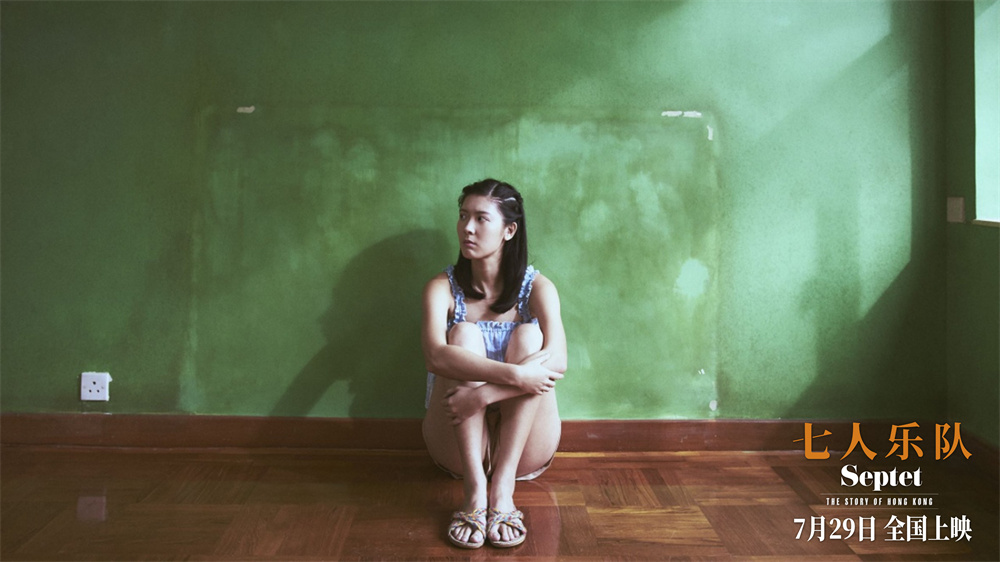
Director Tan, who was born as a photographer, shot very beautifully. What is "exquisite Hong Kong style", just look at Director Tan to understand.
"Farewell to the Night" (directed by Tan Jiaming)The short film depicts the emotional struggle of two high school students who have to go their separate ways and say goodbye in the background of the immigration wave in Hong Kong in the 1980s and 1990s. The subtitles of the story say that it is from the 1980s, but it is not unreasonable to understand it as the 1990s, which is just in line with the content of the later short film about 1997. But the style of the short film may be difficult for most viewers to understand.
Tan Jiaming, to the unfamiliar audience, can simply think that he is Wong Kar Wai's teacher. The creation of the Sunglasses King in his early years, especially the youthful part, was greatly influenced by Tan Jiaming. The protagonists of the story are young people with literary and romantic ideas. Whether they love or hate, they are very straightforward and bold. They can read poems, express their hearts in a literary and artistic way, and they can hurt each other suddenly and strongly.
In terms of lens processing, the editing of this short film is very jumping and powerful, especially like several romantic films made by Director Tan in the 1980s. The tribute is another vein besides the Hong Kong movie "Kung Fu" - "New Wave". But for today's audiences, it may not be suitable for this sometimes literary and sometimes divisive style, and most of them will find it a bit artificial.
In terms of actors and characters, although there are many differences, the male protagonist is reminiscent of Leslie Cheung when he was young, and the female protagonist has a bit of old-fashioned Hong Kong style such as Yang Cai Ni, plus the authentic Cantonese golden lyricism, all very beautiful. It's just that in the story, the two of them were too stuck in a room for a long time about "Do you love me or not", which is inevitably lengthy. Maybe it would be better to be brief.
The question of "love or not", the background is the division caused by the changes of the times. Just like the strange dream of the male protagonist, although the girls will resent each other when they leave, staying together is not a bright future love. Between the choices, it is doomed to be a tragedy for ordinary people.
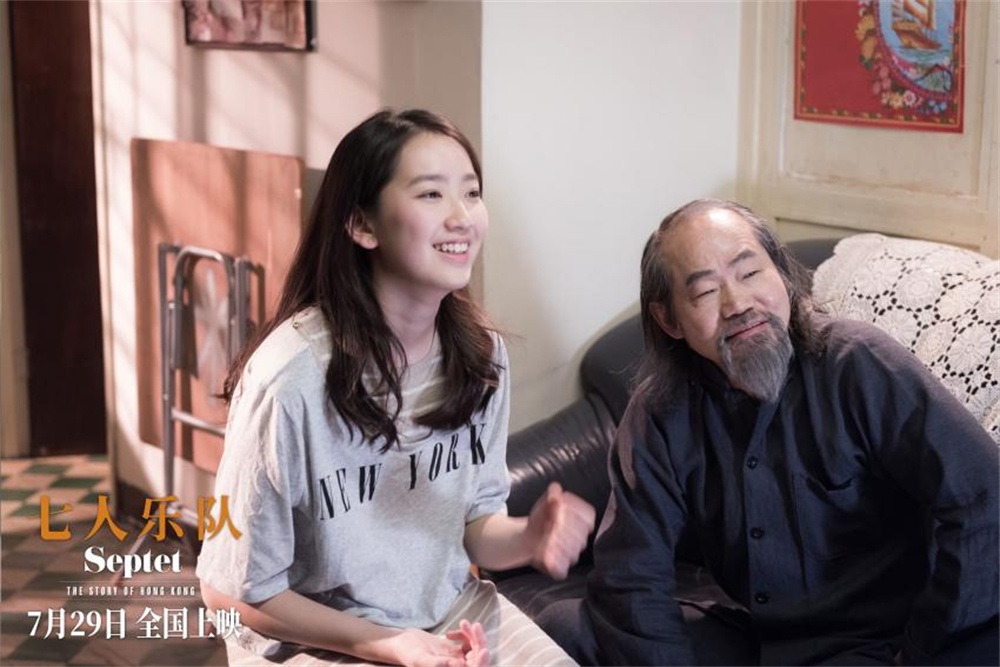
"Return", which is suitable for all ages, is a relatively safe answering method for propositional composition.
"Return" (directed by Yuan Heping)The short film "Return" is based on the cultural collision between the granddaughter and grandfather who lived temporarily around 1997. In the end, in the voice-over, the granddaughter moved back to Hong Kong with her parents and happily reunited with her family.
This kind of grandfather and grandson comedy, which has been filmed in Hong Kong movies before, is a family-friendly way for all ages. Yuan Ba Ye chose Yuan Hua to play his grandfather. The character setting and lines are full of fascination with martial arts and traditional Chinese culture, and he has a cautious learning attitude towards Western culture. The clearest expression of the subject.
The short looks lighthearted, and the story is the most accessible. Maybe in some performances, the comedic performance style is a bit low-key and contrived, and the details of the story may not be able to convince and move the audience. Other than that, there's nothing to blame. At this point in 1997, it was considered a "smooth transition", allowing audiences of different cultural backgrounds to watch it without too much controversy.
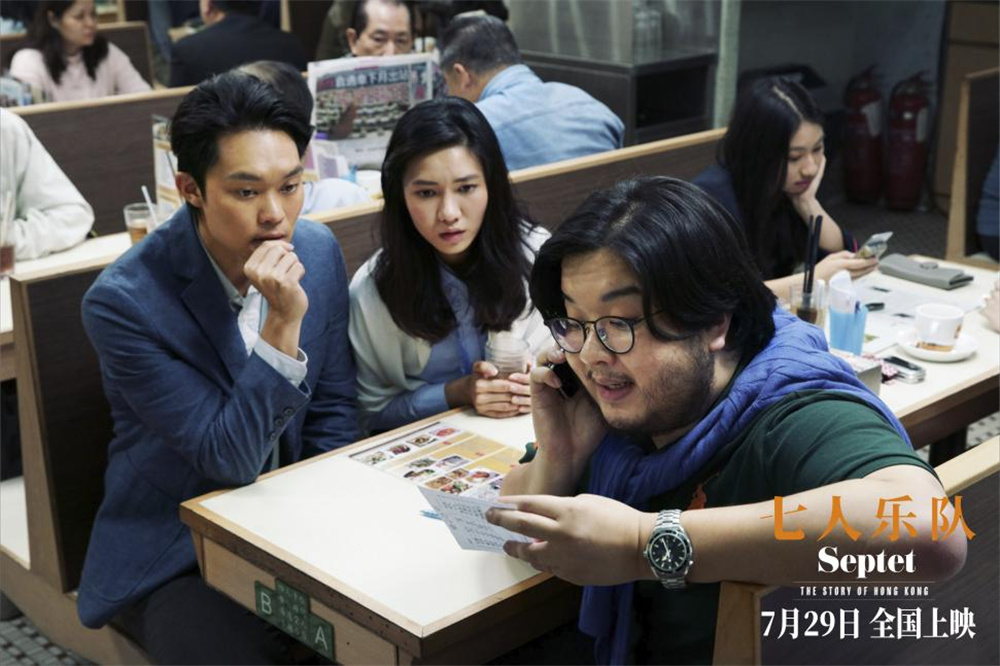
"Everywhere Gold" is set extremely delicately, with a relaxed surface, thrilling core and full of dramatic tension.
"Gold Everywhere" (directed by Johnnie To)Which of the seven shorts is the second best is likely to be debated. But the first one is this "Golden Everywhere", which I believe most audiences can recognize.
Du Sir used three white-collar arguments in an ice room at three different time points, showing the stage-condensed dramatic setting like "Tea House", as well as superb theatrical handling skills. These three timings are not only the IT era when Hong Kong's economic development is the hottest, but also the social crisis raging by the SARS virus, and the background of the financial connection of the mainland and the subprime mortgage crisis in the United States. In particular, the period when SARS was raging, similar to the social pressure brought about by the global epidemic in the past two years, made the audience feel the same.
Among all the ups and downs, the three little characters' choice of "to vote or not to vote" is the most compelling dramatic conflict. There are surprises, struggles, and comedy of windfall in Hong Kong film tradition. However, deep down, it is still the turmoil and worry of ordinary citizens about the precariousness of life. This has the same core as the most local and most ups and downs of TVB's melodrama in the early years. You can understand that this film is a criticism of Hong Kong people's excessive pursuit of wealth and goodwill, or it can be a deep sympathy for their inability to control their own destiny. "Gold everywhere" may be neither praise nor ridicule, but just the sadness of the little people struggling in the times.
I can't help but sigh that Du Sir's current skills are getting more and more sophisticated, and the simple debates and dialogues between the characters are thrilling to watch. A simple period life film turned out to be as exciting as a disaster film.
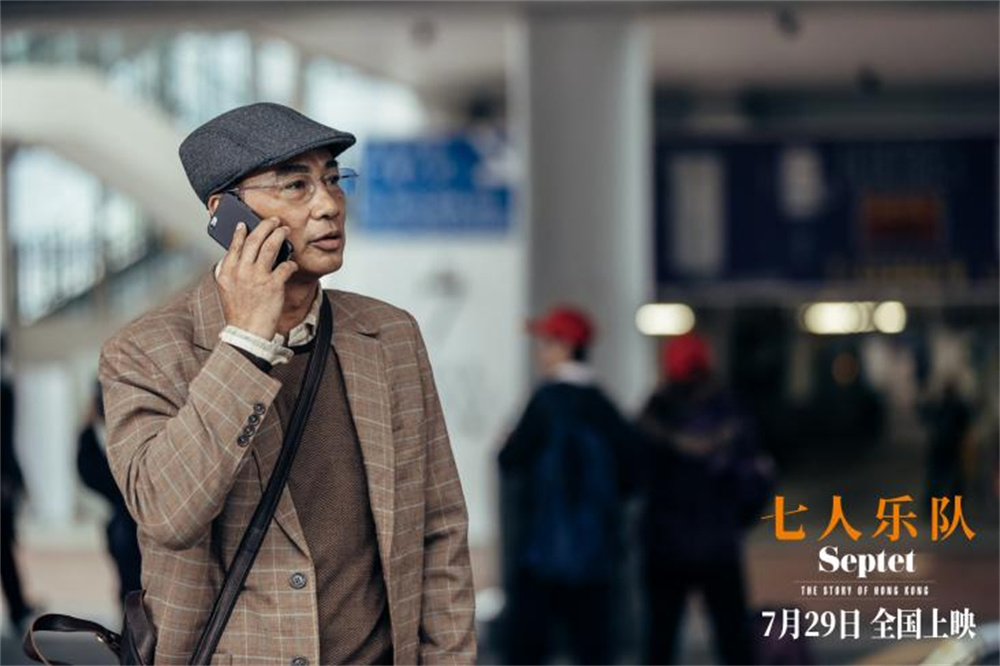
"Lost" seems a little violent and didactic, which is the standard style of director Lin Lingdong.
"Lost" (director Lin Lingdong)Director Lin doesn't seem to have cared much about the story of this short film, and it's a bit of a theme first. The story describes an old-fashioned businessman living in a village house who sent his son to England, but lost his way in Central when he reunited with his wife and children in the future.
Even if the timing of the film's story is deliberately jumped back and forth, there seems to be a split in the attitude of the protagonist of the film. The old-fashioned businessman played by Ren Dahua is very protective of traditional customs and dissatisfied with the excessively westernized child, but he still sends him to the UK; and in the face of today's current situation of high-rise buildings in Central, businessmen are also nostalgic for the past or identify with the fluctuating development. , and finally suffered a car accident abruptly and died on the street.
If the protagonist's comments about culture are a bit chatty and not so Lin Lingdong, then the car accident is still very cruel Lin Lingdong style, and even a little violent. If you get lost, you will have a car accident. The protagonist has the deepest love and memory of Hong Kong's native culture, but he finally died. What the director wants to express is very clear, but the story is too straightforward. Even if you deliberately use the time jump to cover up, it's too straight to give.
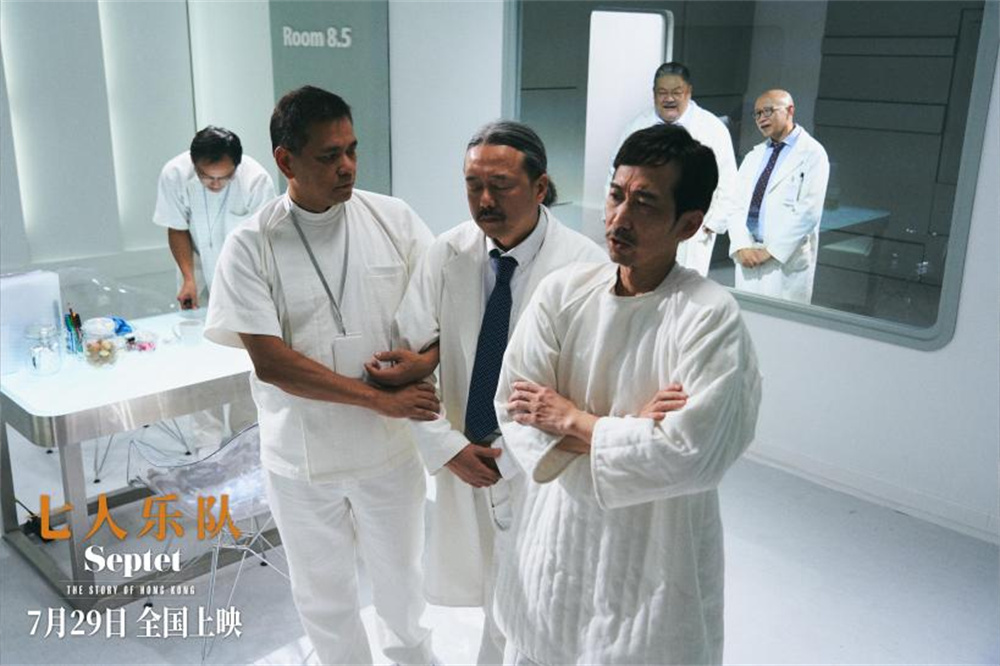
"Deep Conversation" is an absurd drama, and it is what you think it wants to say. It is also a summary of the position of the Band of Seven.
"Deep Conversation" (directed by Tsui Hark)In Director Lin's short film above, there is a little girl surnamed Xu who wants to be a director. In Tsui Hark's short film, the man played by the protagonist Zhang Daming simply claimed that he was Xu Anhua and Du Qifeng. And Xu Anhua finally appeared together with Tsui Hark. The lines of this short film are full of ridicule to the directors. It must have been discussed by Director Xu and Director Lin in advance. In their own part, they must tease Director Xu severely.
Aside from the funny friendships of these insiders, this short film is actually quite crazy, describing the "nonsensical" conversation between a group of doctors and patients in a mental hospital. Perhaps most viewers will think that this is absurdity or black humor, but if you taste it carefully, the short film has a ferocious and terrifying connotation of director Tsui Hark's first "new wave" films in the 1980s. You must know that Old Monster Xu has also adapted Mr. Lu Xun's "Diary of a Madman", "opening the history book and reading it horizontally and vertically, it says that it is full of cannibalism".
The most thought-provoking place, as the character's lines say - "Who is the doctor? Who is the patient?" If the mentally ill pretended to be the dean, who would know and find out? This Foucault-esque inversion of power occurs repeatedly in the short film, and the plot develops quite a bit by surprise. Maybe Mr. Xu was too excited to make the film and forgot that he had drawn lots in advance and had a specific theme to show. So in the end, this short film can only be understood as "the text is not right", and it was shot randomly by the director with his temperament. Fortunately, he is an old monster, and he has always taken a slanted sword. He has also filmed the main theme blockbusters such as "Taking the Tiger Mountain by Wisdom" and "Changjin Lake". As long as no one says he's actually messing around, everyone can just watch it as a comedy.
Therefore, starting from the "Kung Fu Movie" and ending with the "New Wave" is the inherent film culture structure of "The Band of Seven".
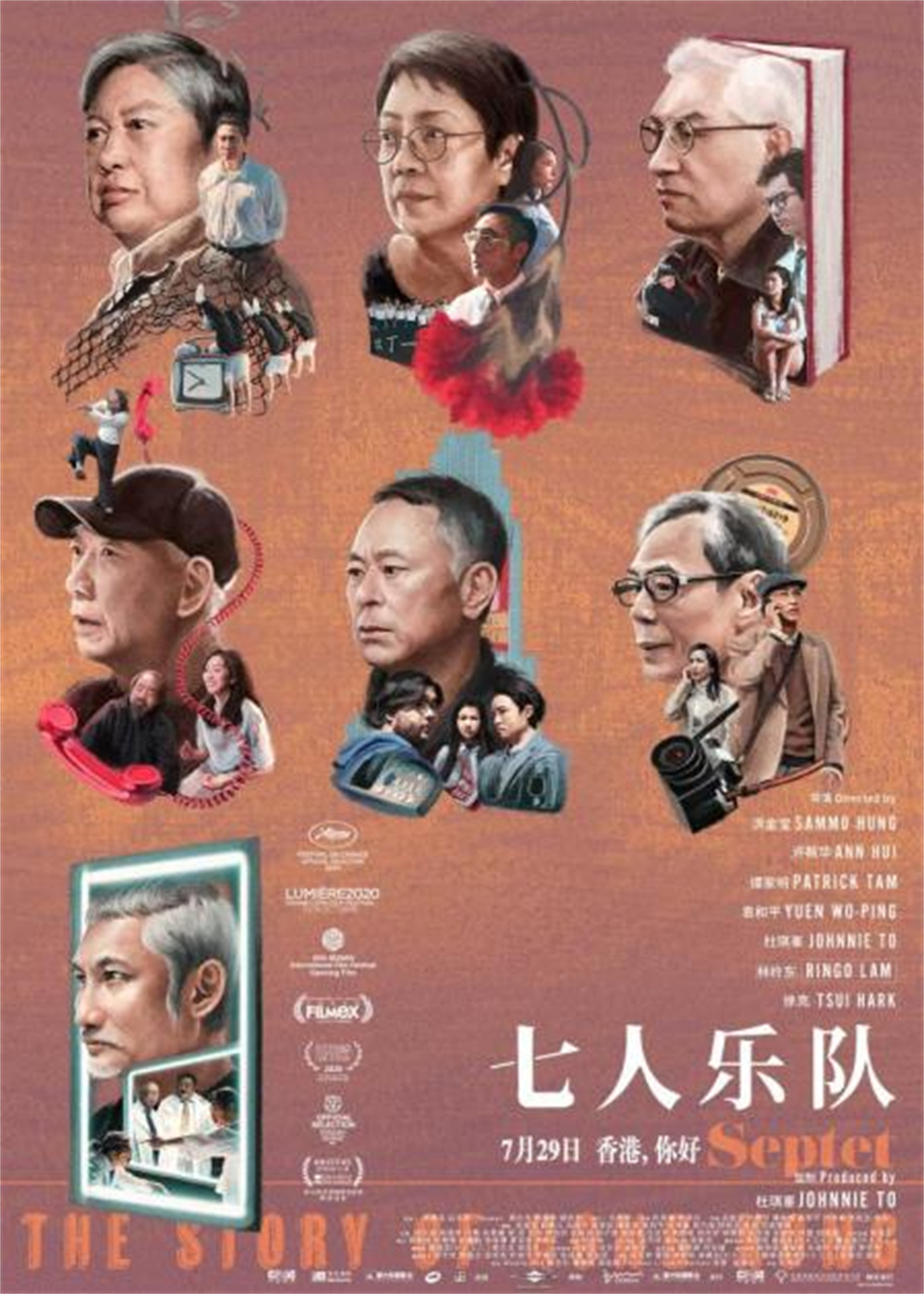
"The Band of Seven" poster
For Hong Kong movies, there is a famous comment, "Everything is overdone, everything is crazy". It means Hong Kong movies, the style of laughter and cursing is very sharp, such as Mr. Lu Xun's daggers and spears. It is not a solemn and profound stage epic, but a sketch with strong characters' emotions and conflicts. The directors' grasp of the theme of the film and the fate of the little people in the social torrent are often very sharp expressions. Actors also use intuitive and changeable performance styles to show their characters, and "nonsensical" is the representative of them.Although "The Band of Seven" is not popular in today's market, it is obviously not a collection of dull art films, but a melodrama show where the directors show their talents. What the seven directors want to shoot, I guess they all know it very well. As for whether it can be filmed in the end for the audience to understand, there is a technical problem that cannot be seen. In this sense, some short films are not well shot, and they seem to be vague and somewhat underwhelmed. But the directors all love Hong Kong culture and Hong Kong movies deeply, which is clearly understandable. Even based on these alone, the spiritual core of the film stands still. This is not a cliché of commercial films flattering the public, but Hong Kong filmmakers are trying to make some flesh and blood voices with their own ideas.